In 1946, the Academy of Motion Picture Arts and Sciences purchased the Marquis Theatre on Melrose Avenue, renaming it the Academy Awards Theatre. In 1949, the name became all the more apt when the Academy moved the ceremony there at the last minute. Accused of trying to influence the outcome of the Academy Awards, the major studios had pulled their funding. This left the Academy scrambling to find a cheaper venue just days before the ceremony. Though the 950-seat Academy Awards Theatre’s reduced capacity was not ideal, the show went on, with Hamlet (UK, 1948) winning Best Picture and stars like Elizabeth Taylor and Ava Gardner gracing the—slightly smaller—stage. This was the only year the Academy Awards Theatre hosted the ceremony.
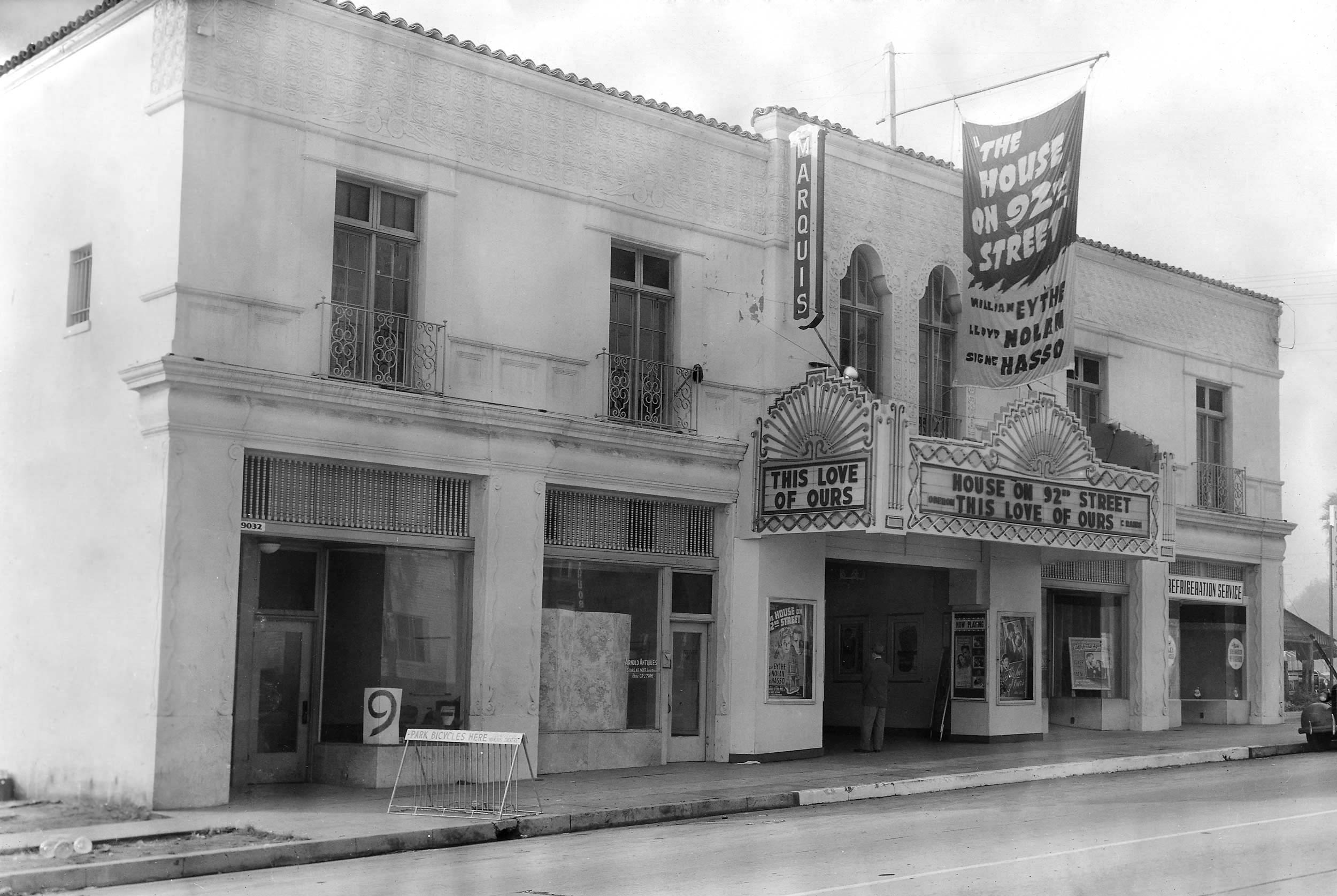
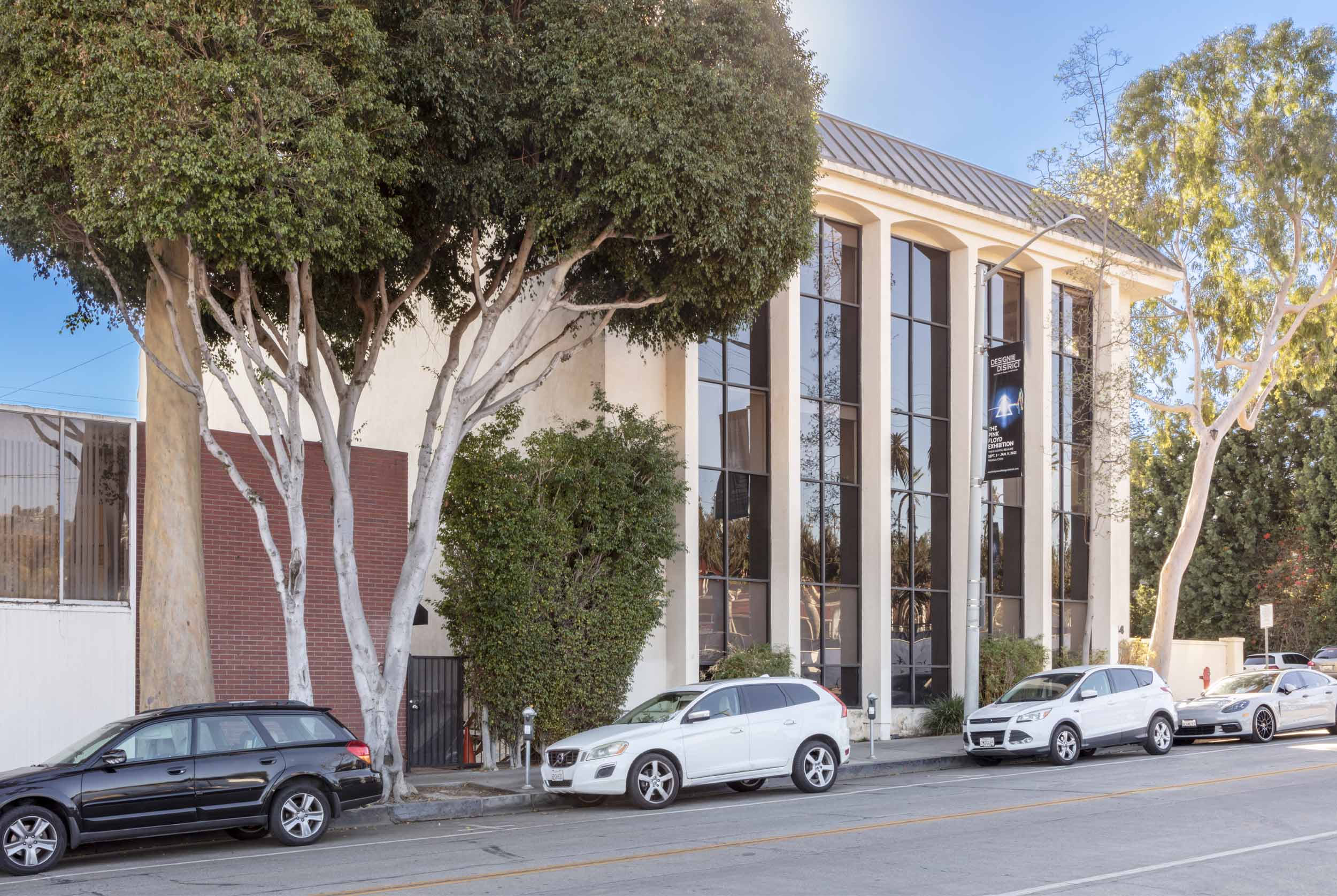
Images: (left) The Marquis Theatre in 1945, before becoming the Academy Awards Theatre. Courtesy of AMPAS reference collection, Margaret Herrick Library, Academy of Motion Picture Arts and Sciences; (right) Location of the former Academy Awards Theatre. Photo by Joshua White, JWPictures/©Academy Museum Foundation
As the Academy of Motion Pictures Arts and Sciences expanded its operations in the 1940s, it needed a bigger space for its headquarters. Its offices had resided in the historic Taft Building for eleven years during Hollywood's Golden Age, but in 1946, the Academy moved into a building on Melrose Avenue. In addition to office space, it included the Marquis Theatre, soon renamed the Academy Awards Theatre.
The acquisition of the venue proved fortuitous. In 1949, just days before the ceremony, the Academy announced it would host the show at the Academy Awards Theatre instead of in a larger sound stage venue as previously planned. They claimed they had "hoped to center activities of the organization in its own establishment" all along, but behind the scenes, a different story played out.
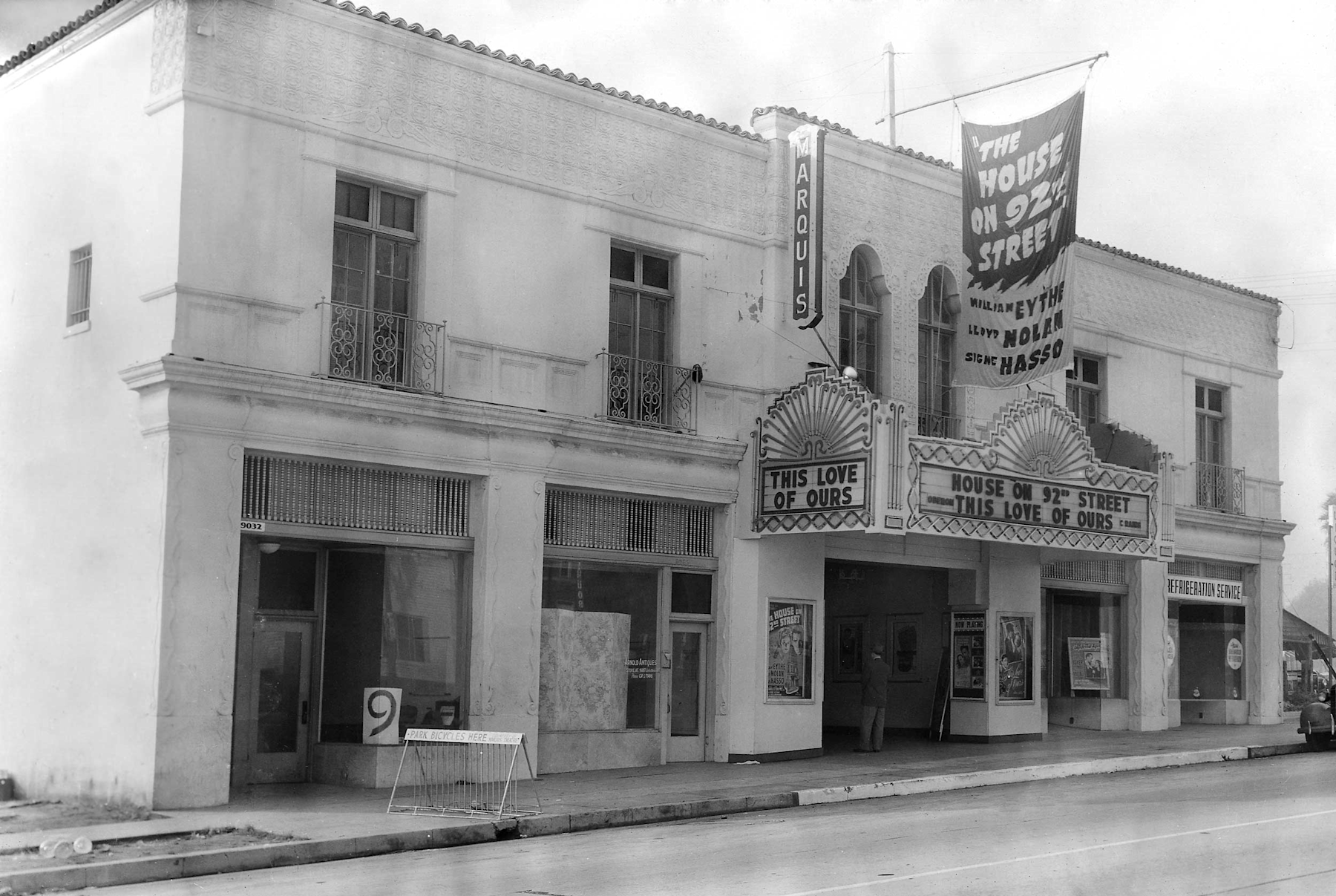
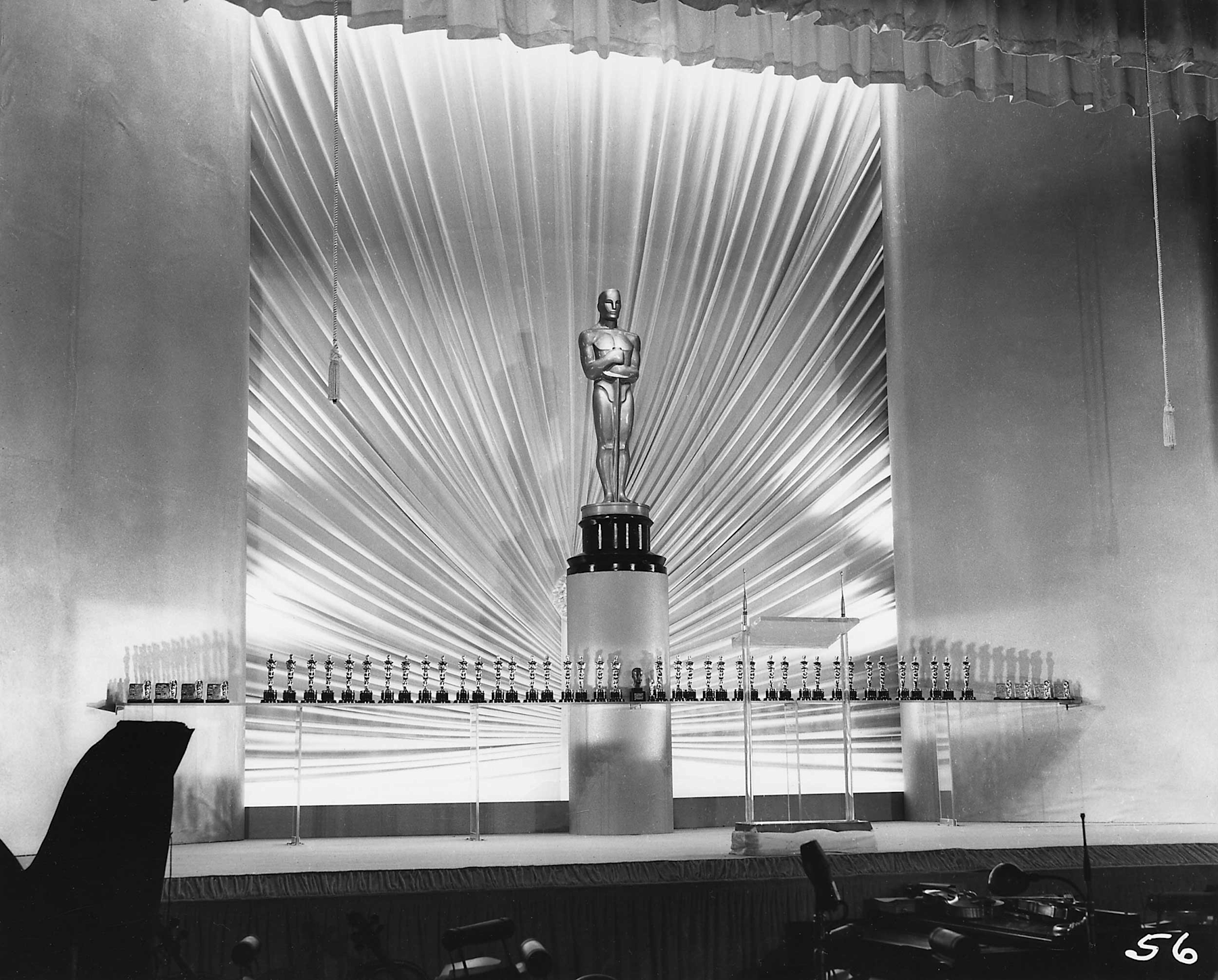


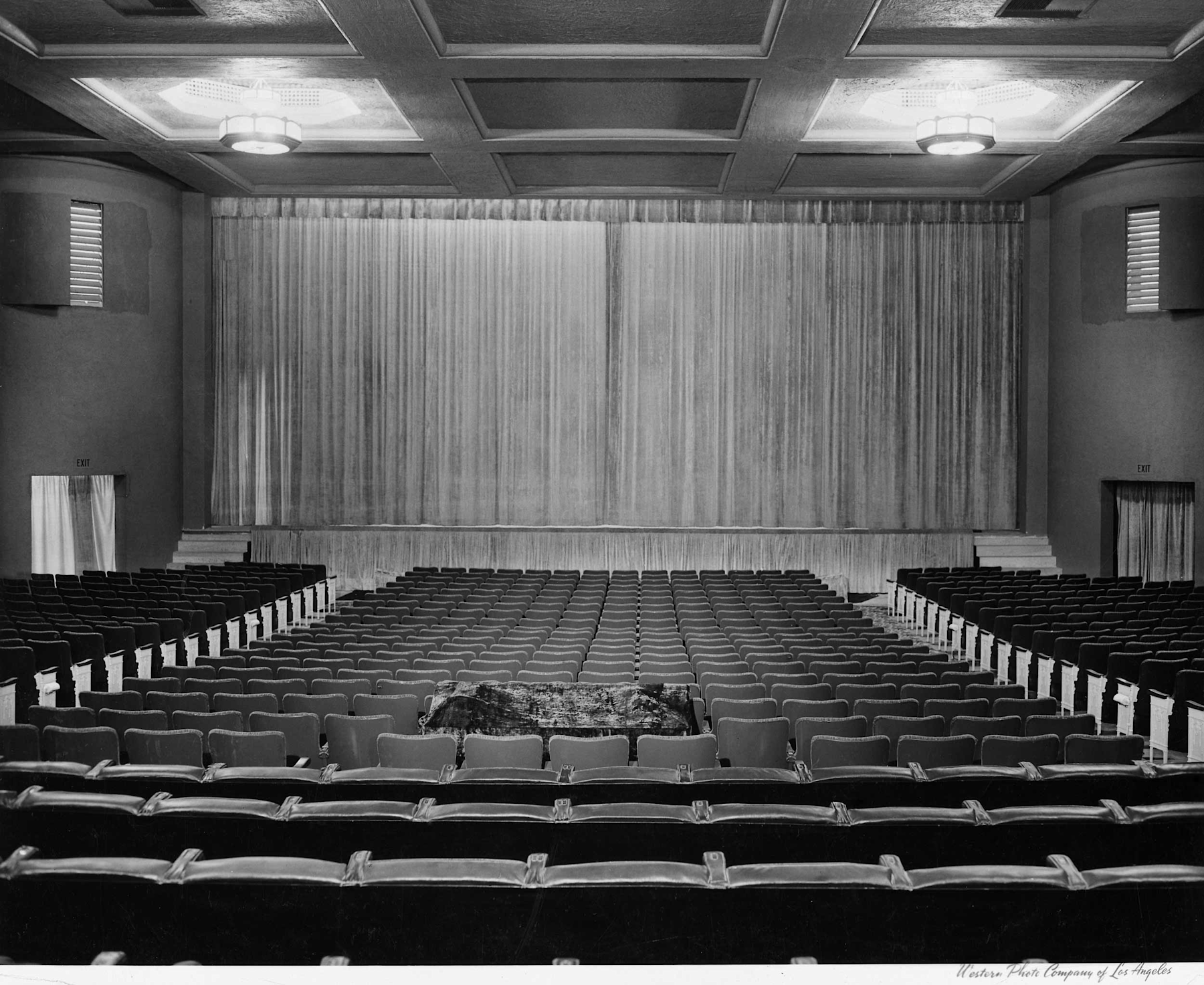
The major studios had underwritten recent Oscar ceremonies, but as the Academy Awards grew in importance, MGM, 20th Century Fox, Warner Brothers, Paramount, and RKO faced allegations that their financial support was intended to influence the organization's voters and the outcome of the ceremony. Facing both bad publicity and mounting costs, the studios pulled their funding at the last minute.
With no time to raise funds to cover a larger venue, the Academy pared the ceremony down to fit the 950-seat Academy Awards Theatre: just "nominees, studio personnel involved with presentations, and the press." The show was still notable, however. Hamlet (UK, 1948) became the first film financed outside of Hollywood to win Best Picture and won four Oscars overall, including Best Actor for Laurence Olivier, who was the first person to direct himself into an Oscar-winning performance. Hamlet's Roger Furse also won Best Costume Design, Black-and-White in the first year that the category was split into separate awards for black-and-white and color films.